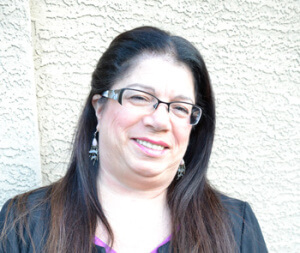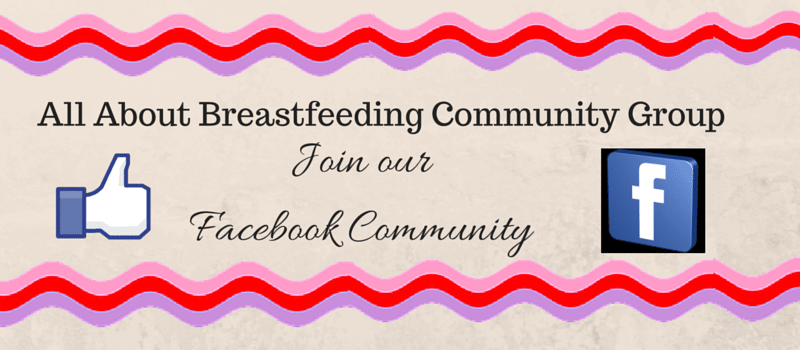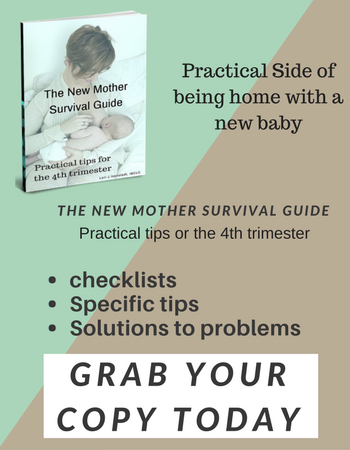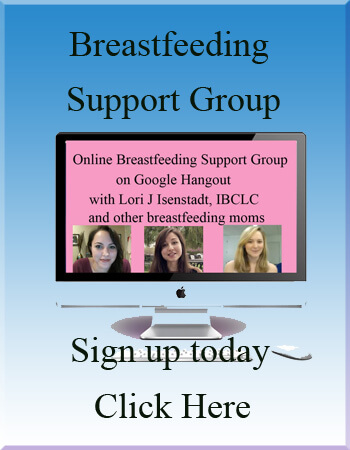Christine Shepherd
In that moment, I had never felt so useless. I brought this baby into the world and I cannot even feed her. I remember knowing that breastfeeding is something that I really wanted to do and now it’s not happening. How do we do this? How do we fix this? I am a fixer. there’s always a problem let’s find a solution, let’s do this.
Her Story.
Part 1
Background history:
Christine was born and raised in South Africa. It was there that she obtained her degree in Dietetics and honed her skills providing breastfeeding education to rural communities. She met her husband during my graduate year. She moved to Portland OR with him in 2004 and started working with WIC that same year. In january of this year we moved down to Ashland where She is now starting hermy own Private Practice after almost 14 years on the public health sector.
She delivered her daughter in 2008 and Breastfeeding difficulties renewed my interest in pursuing a more Breastfeeding centric career. She certified as a IBCLC in 2011 and just re-certified last year. She now owns and operate her own private practice in Ashland Oregon.
Was she breastfed:
 Christine thought that she was breastfed, until she saw a picture of her drinking a bottle. We talked about how big the bottles use to be and how long we would go in between feedings. We talked a bit about how genetics and the part they play in breastfeeding and our babies health. We know that human milk is species specific and our babies need our human milk and yet no mother should feel guilty if she does not breastfeed or is not able to provide a full supply. Christine said: “every ounce counts.” I fully agree.
Christine thought that she was breastfed, until she saw a picture of her drinking a bottle. We talked about how big the bottles use to be and how long we would go in between feedings. We talked a bit about how genetics and the part they play in breastfeeding and our babies health. We know that human milk is species specific and our babies need our human milk and yet no mother should feel guilty if she does not breastfeed or is not able to provide a full supply. Christine said: “every ounce counts.” I fully agree.
Her life before an IBCLC:
Great aspirations of being a physician or veterinarian. She soon changed her mind and switched to majoring in zoology and genetics. She decided she was not thrilled with being in the lab all day and wanted to be around people. She met her best friend who was studying dietetics and breastfeeding was a huge part of that. She finished her education, graduated and said – Now what? I’m moving to the United States and they wanted me to redo my whole internship which would have taken a year. Christine was happy to have found WIC ( Women, Infants and Children) She was able to use her nutrition part of her knowledge, plus the public health piece and have the people connection she so desired. She stayed there for 14 years. WIC helped her to become an IBCLC and eventually opened up her private practice.
Breastfeeding history:
By the time she had her first baby, she had already been working closely with moms and breastfeeding. She said she thought of herself as a “28 year old arrogant mama” at that point who thought since she studied and taught breastfeeding , that she would not need any help. She laughs now as she realizes how misguided she was. A friend of hers had gifted her with a gift certificate for 2 private consultations with an IBCLC. She was grateful for the gift and yet felt her friend kind of wasted this gift on her. It was quite a surprise to her when she realized she was in desperate need of breastfeeding help. At 2 weeks postpartum she called for help.
Now that she understands about birthing trauma and birthing process and how this all manifests and affects breastfeeding, it makes sense to her that she would need some help. She did struggle a lot and worked very hard to get through her struggles. In the first day in the hospital, Hayden had a traumatic birth. She got stuck and it became a c/section where she needed to be pulled out. It was rough on her. She would latch a couple of times. The nurse came in one day and got frustrated because she could not sign off that Hayden had a good breastfeeding experience and therefore could not discharge them. This was all quite surprising to Christine being that she gave birth in a breastfeeding friendly hospital. She came over and grabbed my shoulder and grabbed her head, which was swollen and she just rammed the two of us together as my baby cried out in pain. Christine was coming off the drugs she had during the birth and she was like: “what is happening.” She describes feeling very violated at the time.
From that moment, Hayden refused to nurse in the prone position, even did not want to sleep in that position. She struggled with breastfeeding and so they brought her a pump. No one explained to her how to use it or what she should expect to get as far as volume. In those moments, she had never felt so useless. She brought this baby into the world and she could not even feed her.
I remember that breastfeeding is something that I really want to do and now its not happening.
Christine describes herself as a “fixer” and she started to think about how she could fix this. Her husband was with her and yet they did not talk about the trauma that they had just been through. Christine tells me that her daughter has just turned 9 years old and they just recently just started talking about their birth experience.
Christine is a mom who has been through a pregnancy, a difficult labor, major abdominal surgery, pain medication, can’t sit up well or sit down well, and has just endured a major birth trauma which she and her husband have not processed. At this point, all she does is want to breastfeed her baby as nothing else has gone the way she expected. And yet, she finds herself struggling with breastfeeding.
Birth trauma does affect your breastfeeding experience:
Christine is a mom who knows all about breastfeeding. She has counseled hundreds of moms about these issues. And yet, when it is her turn, she really is just a mom. In addition, she may have some knowledge, it does not mean that our partners have knowledge about latch, pumping, frequency, volume. She felt like if someone had just taken a few minutes to show her how to use the pump, it would have been valuable for her as she did not know how to use this particular pump.
Hospital discharge –
Feeding instructions – Christine said there was bottles and formula and syringes involved, along with pumping. All of this was a part of her discharge feeding instructions. She was pumping, had edema, was engorged and feeling quite miserable.
She was finger feeding and syringe feeding and as she puts it “a lot of tears” because her baby is less than a week old and she is formula feeding. Certainly not what she had planned.
Visit with her lactation consultant:
When the lactation consultant came, she helped her feel much better by teaching her to take it day by day. Put your goals aside and take it one step at a time. It took a little time, but she was able to begin to relax and take a breather and tell herself that she was working on it and it will be okay. It took a while to make that call to the lactation consultant. As it is, her husband made the call. She tells us that the lactation consultant was pretty brutal initially and as the visit went on, the consultant softened up a bit. Christine also acknowledged that while she shares us this information as she remembers it, she also feels that she was so stressed out that she has probably filtered out some things. Like, the consultant probably did introduce herself, explain things before she did it, perhaps was not as invasive with her breast tissue.
Breastfeeding got more complicated and yet it got easier. She found a vacuum cleaner provided white noise. This enabled her daughter to calm down long enough to get the finger feeding going. The lactation consultant suggested the white noise of the vacuum cleaner and it worked well for her. Her husband was an important part of the feeding routine, for which she is grateful as breastfeeding turned out to be more than just a one person job. She wound up using a SNS and a nipple shield. Feeding was very difficult for a long while until she was able to get passed the early
Rebirthing:
The lactation consultant suggested rebirthing and Christine said – absolutely not. She literally thought that would mean going back to the hospital. Once it was explained to her, she was open to the idea. Christine explains to us what is involved with rebirthing. She did this at 3 months and it was pretty incredible. She was so happy that it worked and she was finally able to enjoy her baby fully and breastfeed her comfortably. This experience helps her tell moms – it may take time, it took me 3 months. We can never say never.
Contact Info:
Lactation Consulting Business Info:
GOLD Online 2017
Her Story.
Part 2
The struggles are so great. The guilt is so much, that sometimes mothers need permission:
Christine wonders why we are so afraid to be vulnerable. It seems moms need permission to have a different breastfeeding experience. While we don’t think they need our permission, it seems that moms have such guilt that having an experienced lactation consultant tell them that it there situation is difficult. It is okay if things are not going as planned. This is hard. And it is okay if you aren’t exclusively breastfeeding.
We talked about the hard part of being a consultant is that you want to help so much. Their story does become your story and Christine put it so wisely – “it is a constant therapy.” We need to constantly ask ourselves, what are my feelings toward the situation. Christine and I talk about how much we are constantly learning from mothers and about ourselves. Christine says that if she can learn just one thing every day, she is happy.
At Hayden’s 9th month, something shifted with Christine. She realizes that her first 3 months of maternity leave was a blur. At 9 months, she said things went sideways. She got severe postpartum depression. She was ready to be done breastfeeding by 12 months, however, Hayden had other plans and clearly told her that she still needed to breastfeeding. Christine was able to accept this and learned to not fight the situation. Hayden nursed until she was was 17 months. On the last day of nursing when Hayden decided she was done, Christine than went a little crazy over the ending of their breastfeeding relationship. We laughed about how we sometimes are never happy!
Tongue-tied:
Hayden was tongue tied. Enough to be causing issues, however, Christine did not want to have the revision done and having to deal with exercises afterwards. With having such a traumatic birth, she just did not want to have this procedure done. Instead, she decided to utilize cranial sacral therapy as this would also be helpful structurally after such a traumatic birth. She feels that it was successful with the tie as well as for her babies low tone.
Her son Cohen, had a posterior tongue tie and she chose to use cranial sacral therapy, rather than a revision and oral exercises. She feels it really helped him also. Christine said that he was hypertonic because he had a crocodile latch and her nipples were purple that first night. She wasted no time and took him in right away for CST. It took about 6 sessions and things calmed down dramatically. He has little lisp and a cross bite that wasn’t noticed until his teeth came in. She wonders if this has something to do with his latch and things being off with breastfeeding. She went on to enjoy a nice breastfeeding relationship until he stopped nursing at 2 years of age.
Funny stories about breastfeeding:
Her husband had taken the kids to the store without her. Her daughter is nursing her doll as they are walking through the store. Her almost 2 year old son points to this lady at the store, who is well endowed. He points to her breasts and says: “Dad, milk, lots of milk.” Her husband who was quite embarrassed said to the woman: I’m sorry, he just loves to breastfeed.
We talked about the pleasures of having kids who are different. In utero, at the breast and in other parts of their lives:
Christine gives us an example of how her kids eating habits are different. She works hard to work with them and keep that individuality in tact. She is all about not fighting – choose your battles.
Words of wisdom to new moms:
Give yourself a break. You are doing the best you can today and that is okay. Just take it day by day. Forget your goals. It’s okay, your birth plan didn’t work out, but today is today and just take it one day at a time. It will be okay.
Her private practice:
Latchy moms consulting is the name of her private practice. She is having a very busy summer with her kids and has put aside building her practice until school starts. She offers home visits, just like she did with the county. She loves doing this as she feels she learns so much more being in her clients space and feels they get so much more out of it. We talk about the benefits of helping moms in their homes. One of them being helping them breastfeed in the place where they are usually going to be sitting or laying feeding their baby. We can also take a look at their space and making suggestions to make it easier for them.

listen Now Part 1
listen Now Part 2
Lori J. Isenstadt, IBCLC
 Lori Jill Isenstadt, IBCLC is a huge breastfeeding supporter. She has spent much of her adult life working in the maternal health field. Once she became turned on to birth and became a childbirth educator, there was no stopping her love of working with families during their childbearing years. Lori became a Birth doula and a Postpartum doula and soon became a lactation consultant. She has been helping moms and babies with breastfeeding for over 25 years. Lori founded her private practice, All About Breastfeeding where she meets with moms one on one to help solve their breastfeeding challenges. She is an international speaker, book author and the host of the popular itunes podcast, All About Breastfeeding, the place where the girls hang out. You can reach Lori by email at: [email protected] or contact her via her website: allaboutbreastfeeding.biz/contact
Lori Jill Isenstadt, IBCLC is a huge breastfeeding supporter. She has spent much of her adult life working in the maternal health field. Once she became turned on to birth and became a childbirth educator, there was no stopping her love of working with families during their childbearing years. Lori became a Birth doula and a Postpartum doula and soon became a lactation consultant. She has been helping moms and babies with breastfeeding for over 25 years. Lori founded her private practice, All About Breastfeeding where she meets with moms one on one to help solve their breastfeeding challenges. She is an international speaker, book author and the host of the popular itunes podcast, All About Breastfeeding, the place where the girls hang out. You can reach Lori by email at: [email protected] or contact her via her website: allaboutbreastfeeding.biz/contact
Submit a comment
your email address will not be published











